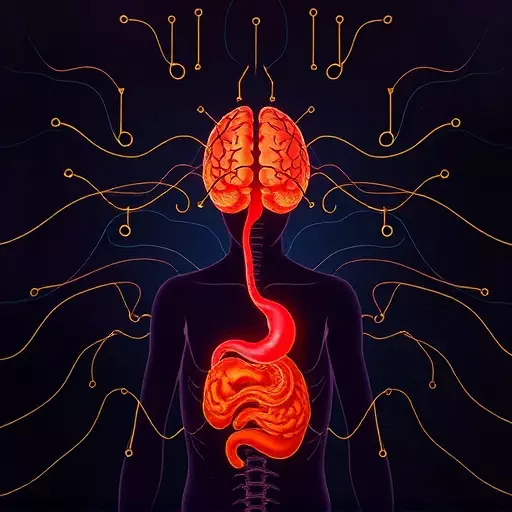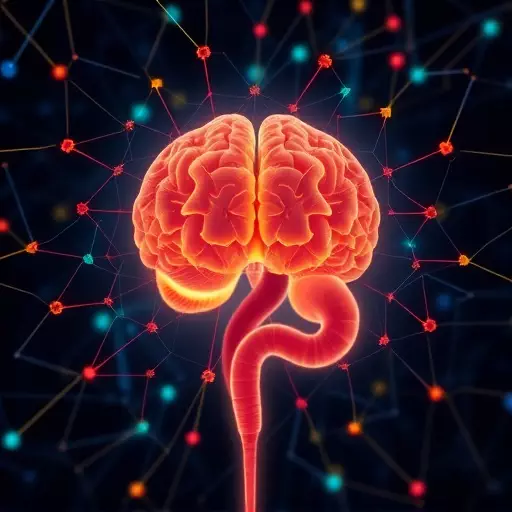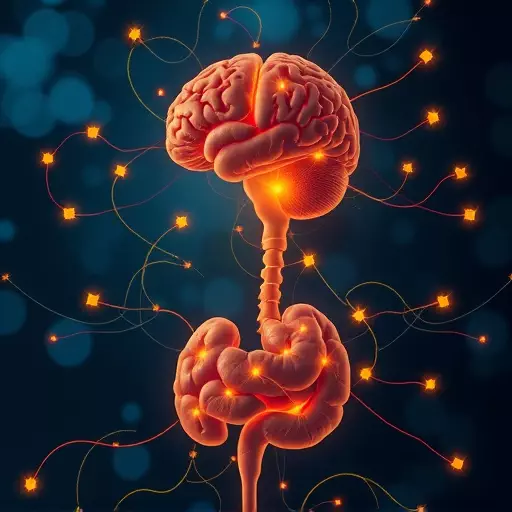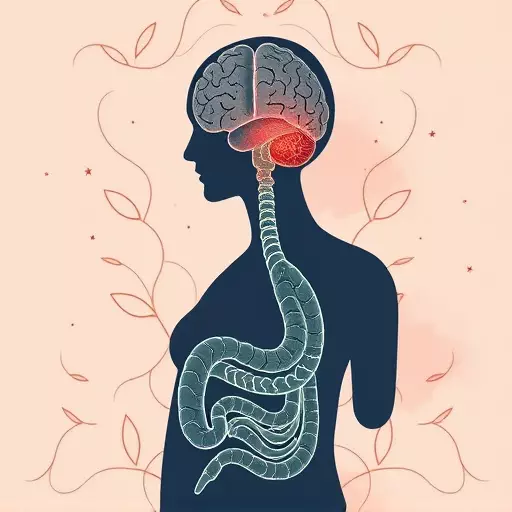Integrative medicine in Toledo provides a holistic approach to managing chronic stress, PTSD, and anxiety. Somatic therapies targeting the gut-brain axis, which connects digestive health and mental clarity, offer innovative solutions. These techniques, including mindfulness practices and dietary changes, help individuals process traumatic memories, reduce anxiety, and improve resilience to stress over time.
Chronic stress takes a toll on our bodies and minds, impacting our overall well-being. This article explores effective functional treatments for managing chronic stress, focusing on holistic approaches that go beyond traditional medication. We delve into integrative medicine in Toledo as a powerful tool, examining somatic therapies for PTSD and gut-brain axis interventions to target anxiety at its root. Additionally, we discuss mindfulness techniques and lifestyle changes to enhance resilience, offering comprehensive strategies for a healthier, less stressed life.
- Understanding Chronic Stress: Symptoms and Impact
- Integrative Medicine in Toledo: A Holistic Approach
- Treating PTSD with Somatic Therapies: Targeting the Body, Mind Connection
- Gut-Brain Axis Interventions: Unlocking Anxiety Relief
- Mindfulness Techniques for Daily Stress Management
- Lifestyle Changes to Enhance Resilience and Well-being
- Integrative Treatments: Combining Approaches for Comprehensive Care
Understanding Chronic Stress: Symptoms and Impact

Chronic stress is a prevalent issue that can significantly impact an individual’s overall well-being. It refers to a prolonged state of heightened stress response, often triggered by ongoing challenging situations or traumatic events. Unlike acute stress, which is short-term and promotes focus and energy, chronic stress can lead to physical and mental health complications if left unaddressed. Symptoms may include persistent feelings of worry, irritability, fatigue, difficulty concentrating, insomnia, changes in appetite, and even physical manifestations like headaches, muscle tension, and a weakened immune system.
In the context of integrative medicine in Toledo, treating chronic stress involves a holistic approach. Somatic therapies, such as those focusing on the gut-brain axis, have shown promise in addressing anxiety and PTSD. These interventions target the deep connection between the digestive system and the brain, recognizing that gut health can influence mood and mental clarity. By implementing various techniques to calm and regulate the body’s response to stress, individuals can experience improved resilience and a reduced impact from chronic stress over time.
Integrative Medicine in Toledo: A Holistic Approach

In Toledo, a growing trend towards Integrative Medicine offers a holistic approach to managing chronic stress and related conditions such as PTSD and anxiety. This alternative treatment model combines conventional medical practices with complementary therapies, focusing on the interconnectedness of the mind, body, and spirit. For instance, somatic therapies, which have gained recognition in treating PTSD, focus on releasing physical tension and trauma stored in the body, offering a unique perspective distinct from traditional talk therapy alone.
Additionally, addressing anxiety through gut-brain axis interventions is another prominent strategy within integrative medicine. The gut-brain axis refers to the bidirectional communication between the gastrointestinal tract and the brain, highlighting the intimate link between mental health and digestive well-being. By targeting this axis with techniques like probiotics, dietary changes, and specialized therapies, practitioners aim to alleviate anxiety symptoms and promote overall mental resilience.
Treating PTSD with Somatic Therapies: Targeting the Body, Mind Connection

Treating PTSD with Somatic Therapies focuses on the intricate connection between the body and mind, offering a novel approach to managing chronic stress, especially Post-Traumatic Stress Disorder (PTSD). This method, gaining traction in integrative medicine circles, particularly in Toledo, targets the root causes of anxiety and trauma by addressing the gut-brain axis. The gut-brain axis refers to the bidirectional communication between the central nervous system and the enteric nervous system, which controls gastrointestinal functions.
By manipulating this axis through interventions like visceral manipulation, massage therapy, or mindfulness practices, somatic therapies aim to reduce stress responses and promote healing. These techniques help individuals reprocess traumatic memories, regulate emotions, and gain a sense of control over their physical reactions to stressful situations. Thus, somatically-driven treatments offer a holistic approach to PTSD management, addressing both the psychological and physiological aspects of this complex disorder.
Gut-Brain Axis Interventions: Unlocking Anxiety Relief

In the realm of integrative medicine in Toledo, a growing focus on the Gut-Brain Axis (GBA) offers promising avenues for addressing anxiety and its related disorders, such as PTSD. This intricate connection between the gastrointestinal tract and the brain has garnered significant interest from healthcare professionals worldwide. By employing gut-brain axis interventions, individuals can unlock powerful tools to manage chronic stress and its associated symptoms.
Treating PTSD with somatic therapies targeting the GBA involves exploring the complex relationship between emotional well-being and gut health. Somatic therapies focus on the body’s physical responses to trauma, aiming to desensitize individuals to stressful memories and triggers. Through various techniques, such as mindful movement, yoga, and deep breathing exercises, these interventions promote relaxation and reduce anxiety symptoms. By addressing the gut-brain axis, somatic therapies aim to calm the mind and body, providing long-lasting relief for those struggling with chronic stress and anxiety disorders.
Mindfulness Techniques for Daily Stress Management

In the realm of managing chronic stress, mindfulness techniques have emerged as a powerful tool within integrative medicine in Toledo and beyond. These practices, often incorporated into somatic therapies, enable individuals to address post-traumatic stress disorder (PTSD) and anxiety by fostering a deeper connection between the mind and body. By focusing on the present moment, mindfulness meditation helps calm the nervous system, reducing the physical and emotional responses to stress triggers. This approach is particularly beneficial in treating PTSD, as it aids in reprocessing traumatic memories and reducing their impact on daily life.
Furthermore, addressing anxiety through gut-brain axis interventions has gained prominence. The gut-brain axis refers to the bidirectional communication between the gastrointestinal tract and the brain, highlighting the intimate link between digestive health and mental well-being. Interventions targeting this axis can involve dietary modifications, probiotics, or specific supplements to modulate the gut microbiota, which in turn influences neurotransmitter production and emotional regulation. Integrative medicine practitioners in Toledo utilize these somatic therapies to offer holistic solutions for managing chronic stress, providing individuals with practical tools to navigate life’s challenges more effectively.
Lifestyle Changes to Enhance Resilience and Well-being

Lifestyle changes play a pivotal role in managing chronic stress and enhancing overall resilience. Integrative medicine in Toledo offers a holistic approach, focusing on treating the root causes rather than just symptoms. One effective strategy is adopting a balanced diet that supports mental health; for instance, gut-brain axis interventions have shown promise in addressing anxiety disorders. By nurturing your body with nutritious foods, you can positively influence your mood and stress response.
Additionally, regular physical activity, mindfulness practices like meditation or yoga, and sufficient sleep are cornerstones of stress management. These lifestyle modifications work synergistically to reduce the impact of chronic stress on both mental and physical well-being. Even more, treating post-traumatic stress disorder (PTSD) with somatic therapies, such as those offered in Toledo’s integrative medicine centers, can help individuals process traumatic memories and gain a sense of control over their lives, ultimately fostering resilience and improving quality of life.
Integrative Treatments: Combining Approaches for Comprehensive Care

In the realm of managing chronic stress and its associated conditions like PTSD and anxiety, integrative medicine in Toledo offers a promising path forward. This approach combines various therapeutic modalities to provide comprehensive care that addresses the whole person—mind, body, and spirit. For instance, treating PTSD with somatic therapies, such as eye movement desensitization and reprocessing (EMDR) or somatic experiencing therapy, can help individuals process traumatic memories while also focusing on physical sensations and movements.
Additionally, addressing anxiety through gut-brain axis interventions gains significant traction in integrative medicine. The gut-brain axis refers to the communication between the gastrointestinal tract and the brain, highlighting the intimate connection between mental health and digestive well-being. By targeting this axis with techniques like mindfulness meditation, yoga, or specific dietary modifications, individuals can experience reduced anxiety levels and improved overall stress resilience.
